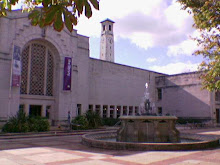We had a very busy meeting this afternoon. 16 people attended and we ran out of time so some poems will be held over to another ‘free choice’ meeting. The poems that were read prompted a wide range of responses. They also fell into clear categories. Perhaps these were an unconscious response to the miserable weather, but we had several poems on death and grief, including the horrific poem for Holocaust Day ‘More Light! More Light!: for Heinrich Blucher and Hannah Arendt’ by Anthony Hecht. Christopher Reed’s ‘Afterlife’ at least allowed some choice in the disposition of the body, while Thomas Hardy’s ‘The Voice’, remembered the dead with regretful nostalgia. The feminist icon ‘Lady Lazarus’ by Sylvia Plath called forth the usual comments. We moved on from death itself to various somatic topics. Roger McGough’s ‘The Wrong Beds’ was taken to sum up general human experience. More beds evoked melancholic observations in Elizabeth Jennings ‘One Flesh’. Away from beds, David Scott-Blackhall’s ‘Because it’s There’ discussed his own blindness, while Mimi Khalvati expressed female togetherness in ‘The Waiting House’. The body images in ‘So Do We’ by Elsa Linguanti caused much debate and we concluded for the most part that the poem was an intense consideration of language. After so much concentration on the fragility of the human body Blake’s ‘The Tyger’ was a timely reminder of physical strength, and Joan B. Howe’s ‘Rosemary’ at least had the brightness of flowers, even thought its associations are with death and remembrance.
Our theme next time (March) will be Journeys.
Our theme next time (March) will be Journeys.
